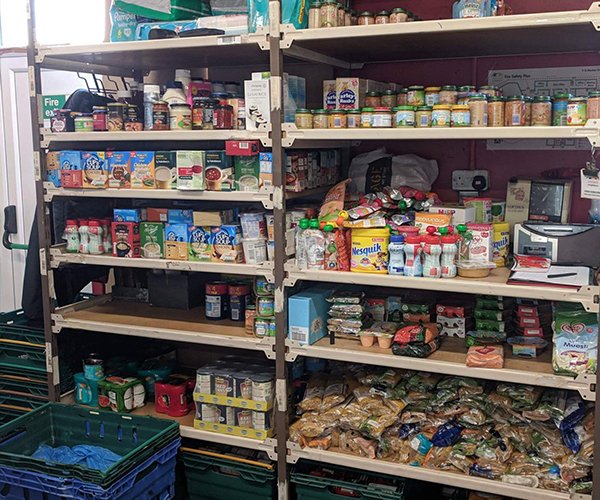British food banks have become the stubborn symbol of a country that simply refuses to accept that it has a very real poverty problem.
The Trussell Trust — the UK’s largest network of food banks — has repeatedly reported that the number of emergency food packages it has had to deliver has increased from 41,000 a year in 2009/10 to 1.2 million in 2016/17.
But the problem is actually even worse than previously feared — certainly in Scotland, according to new data, and quite possibly across the rest of the country, too.
Take Action: Tell the UK Government — Let’s Be the Generation to Get Every Child in School
For the first time, there’s been a review into the work of independent food banks across Scotland — a process yet to take place across the rest of the country — led by the Independent Food Aid Network (IFAN) and supported by A Menu for Change, a partnership project set up to tackle food poverty in Scotland.
It found that 221,977 food parcels were distributed by 84 independent food banks in Scotland between April 2017 and September 2018. That doesn’t include the 258,606 parcels given out by the 118 food banks in the Trussell Trust network — meaning a combined total of almost half a million packages over 18 months.
Today with @IFAN_UK we've published new research revealing the number of food bank parcels given out in Scotland is almost double the previously known figure https://t.co/p44h0YRxH5 Underlines urgency for @ScotGov to bring forward its plans to top up poorest families' incomes pic.twitter.com/Qb3decKHcT
— A Menu for Change (@MenuForChange) March 27, 2019
Given that the previous reported total only came from the Trussell Trust, it means that the number of recorded food packages in Scotland has now doubled.
That’s because there were only 10 independent food banks that did not declare their statistics, according to the report — so when you add those estimated projections to the overall calculated total there’s a rough equivalence between the packages distributed by independent food banks and those from the Trussell Trust.
There’s at least 709 more independent food banks in England, Wales, and Northern Ireland too — meaning that it’s likely figures are far worse than previously believed across the whole country.
Statistics published by the Scottish government in September 2018 found that 1 in 5 single parents had gone hungry in the country. Sabine Goodwin, IFAN's coordinator who gathered the independent food bank data, told Global Citizen that there’s a number of factors at play.
"Over the last 10 years, the breakdown of the welfare state as well as low wage and insecure work has led to a huge rise in poverty levels and food bank use,” Goodwin said.
"Both the UK and Scottish governments must address the root causes of the desperate poverty faced by countless adults and children,” she added. “It's unacceptable that in the fifth richest economy in the world we're in need of charitable food aid at all."
These figures from @MenuForChange & @IFAN_UK worryingly illustrate the growing need for #foodbanks in #Scotland. It doesn’t have to be like this. We can end #poverty by ensuring our benefits system provides enough money & support to anyone who needs its help > https://t.co/brQsZUDoB1
— The Trussell Trust (@TrussellTrust) March 27, 2019
Both IFAN and A Menu for Change have also signed a letter authored by Olivier de Schutter, a former UN food rights expert, opposing the institutionalisation of food aid in Britain.
It argues that directing surplus food from supermarkets into food bank supply chains benefits the image of large corporations while ignoring the real causes of systematic inequality — like the low wages paid to its own workers. The letter calls for improvements to the welfare system and income security, rather than “‘leftover food’ for ‘left behind’ people.”
Read More: Scottish Council to Give Free School Meals All Year to Tackle 'Holiday Hunger’
More than 8 million people in the UK struggle to put food on the table, according to the Food Foundation. As a result, the total number of emergency packages distributed by the Trussell Trust stood at 1.3 million over the whole of 2018.
That then prompted a coalition of MPs to urge the government to appoint a minister with specific responsibilities for hunger in January.
